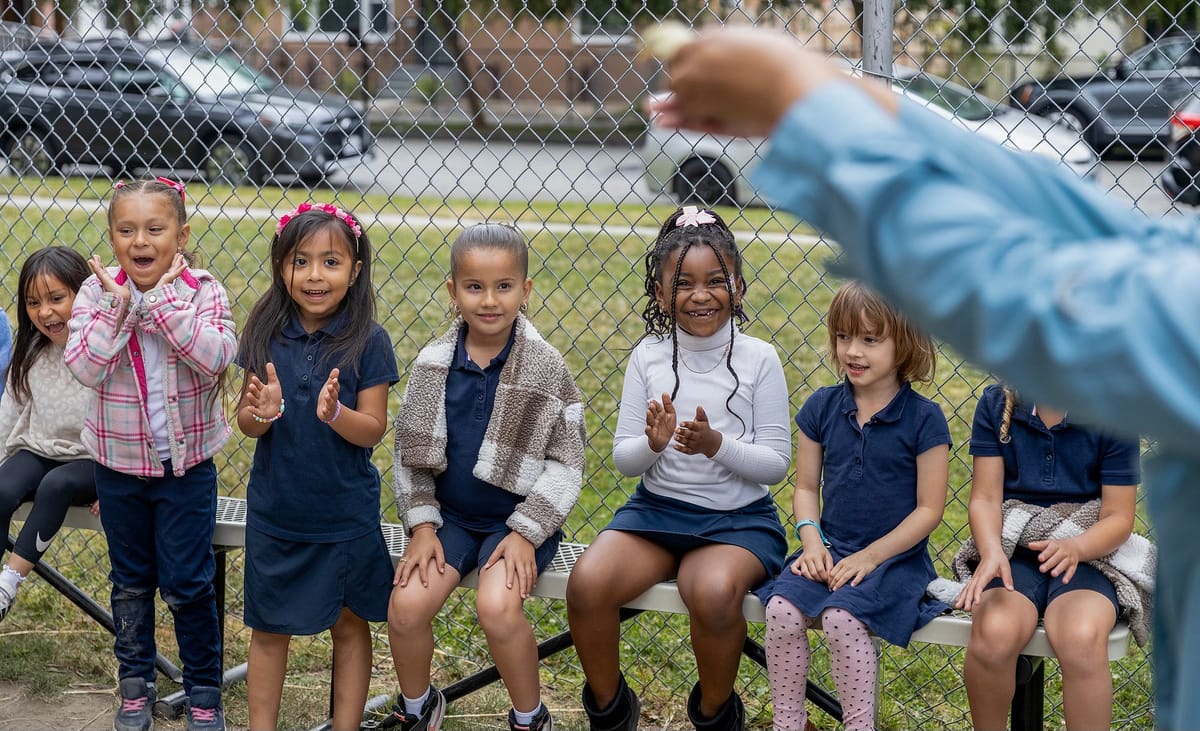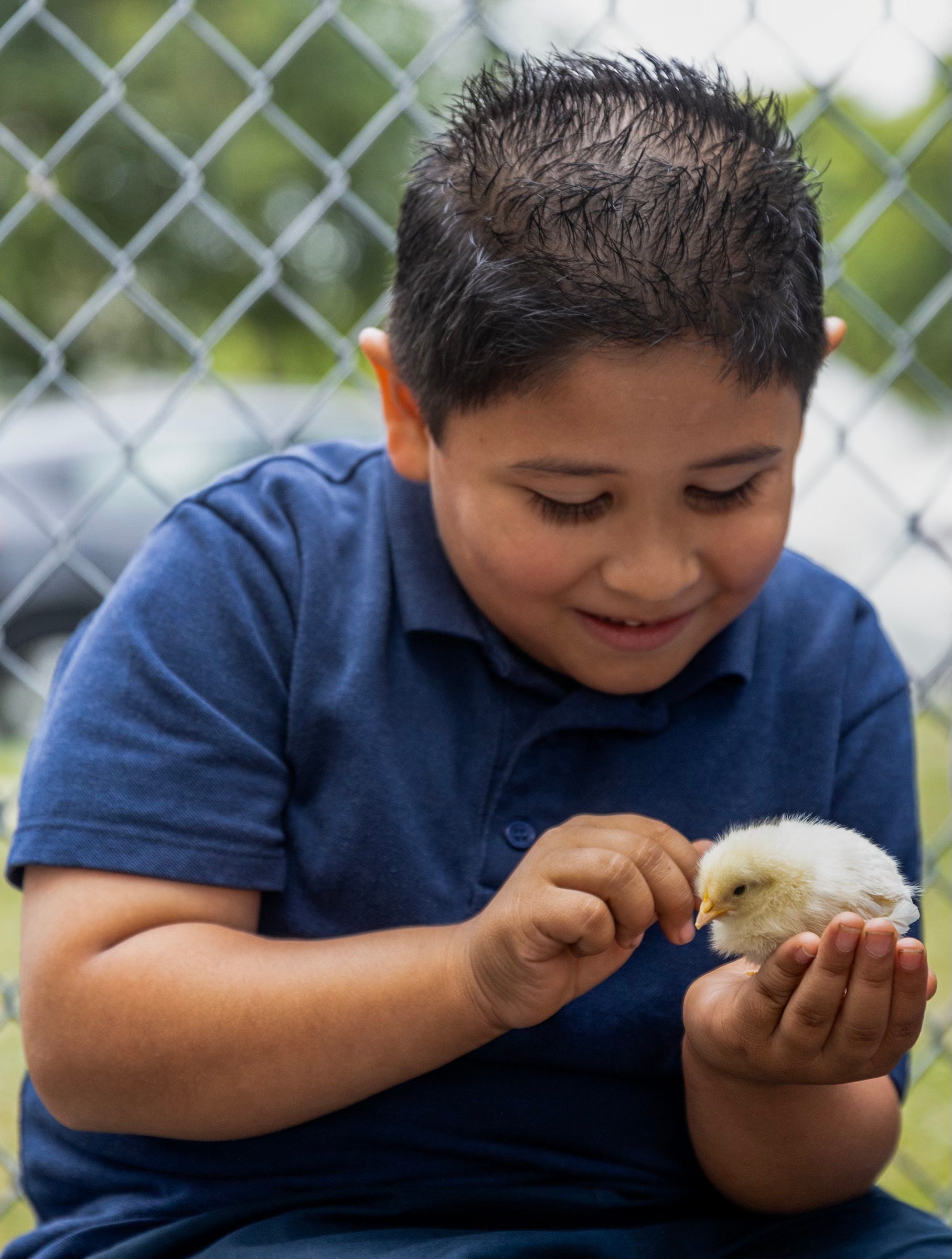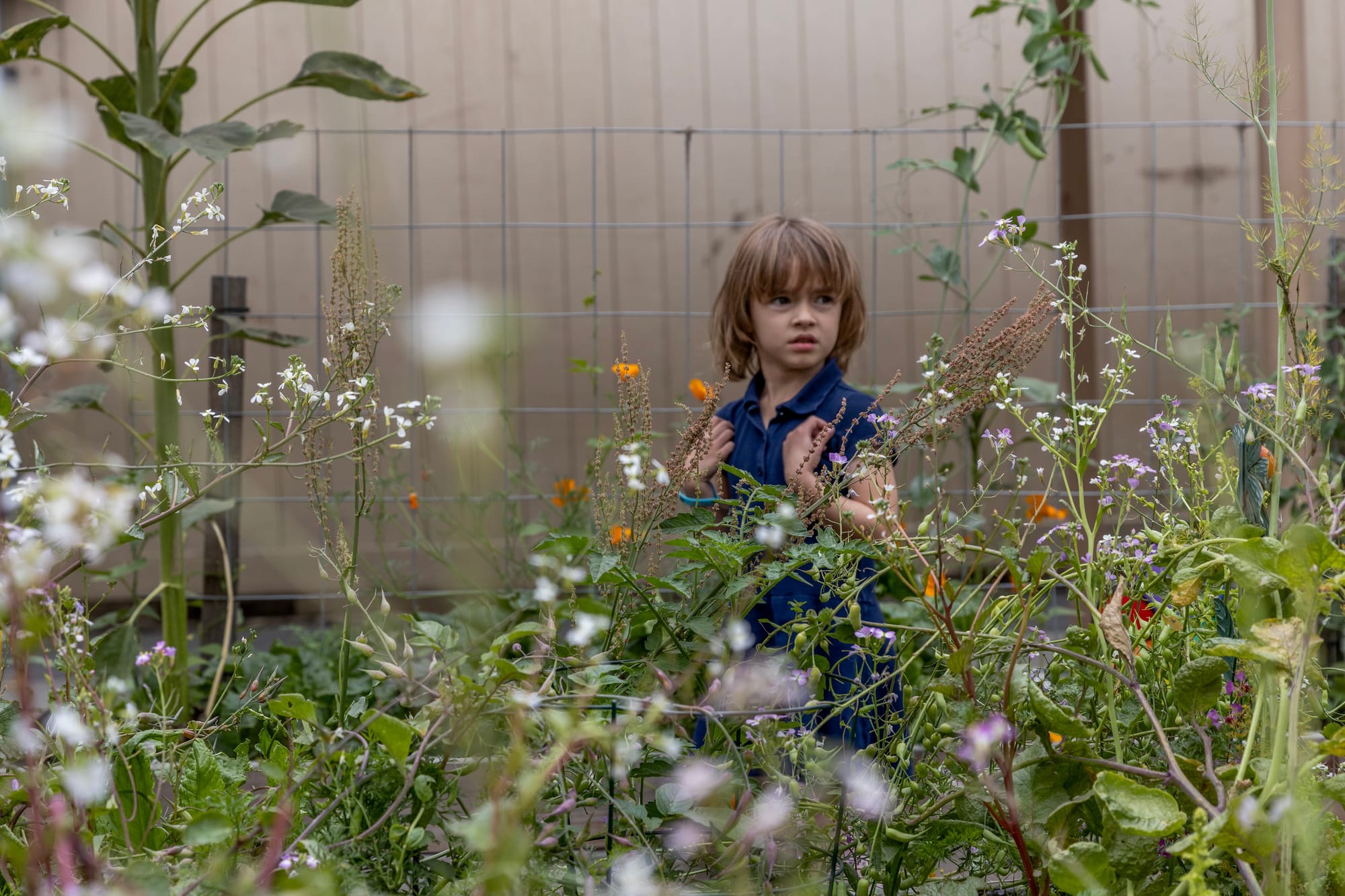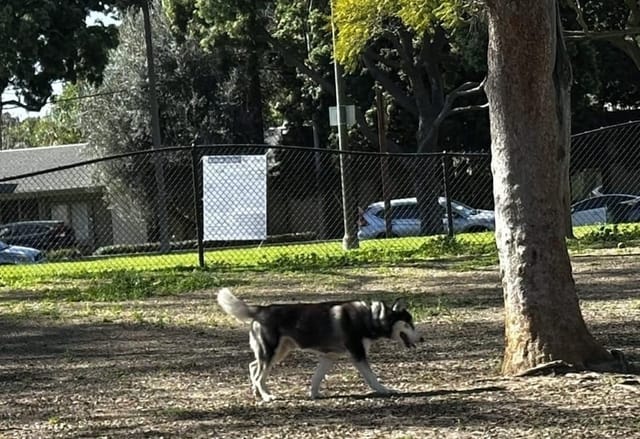This Long Beach nonprofit wants to put gardens at every LBUSD elementary school. This summer, they’ll be halfway there.
Ground Education now offers nature lessons at nearly two dozen schools around the city, and they’ll soon install eight new gardens.

If you know a Long Beach student whose grade school doesn’t have a garden, don’t worry – one is probably coming soon.
Local mom-founded nonprofit Ground Education has built gardens and offers related curriculum at 22 of Long Beach Unified’s schools for kindergarteners through fifth graders, and they’ll soon be halfway to their goal of reaching every grade school in the district.

Even with sometimes limited space, the gardens are much more than a patch of carrots or a few flowers. The one at Muir Academy – new this school year – includes radishes, scallions, rainbow chard, French sorrel, sunflowers and poppies in raised beds, and has a walkway lined with native California plants that seem popular with bees.
Older students at Muir planted winter wheat last fall, and after tending it for months, they’ll harvest and thresh the plants, then grind the grain into flour they can take home. They’ll also flex their math skills to calculate how much wheat they’d need to make pancakes for the entire school.
“It’s one of my favorite lessons because they really kind of put into perspective how much farmland, how many crops it takes” to feed a community, Ground Education cofounder Holland Brown said.

Since she and fellow mom Karen Taylor orchestrated the creation of a garden for their kids’ class at Lowell Elementary in 2008, such lessons have become their life’s work.
Over the next few years they developed a curriculum with age-appropriate nature, agriculture and even economic lessons that include raising carrots and radishes from seed to harvest, learning about predators while dissecting owl pellets, and making jam from strawberries they harvested.
“Even the kids who are not engaged in class love this,” said Muir Academy kindergarten teacher Maile Oca. “To pull things out of the ground and eat them, to see them go through all the stages – they look forward to it.”
One recent day, Oca’s students learned about how chickens hatch from eggs, that they’re related to dinosaurs and can remember people’s faces. Then they took turns gently and carefully holding a peeping baby chick.
For Aida Jamali, who teaches third grade at Herrera Elementary, it’s students’ “aha” moments that show the real value of school gardens.

She and another teacher had created a garden with grant funding, but when Ground Education came in to manage it and teach lessons, she said “it just blew up,” allowing every student in the school a chance to get their hands dirty.
In the garden, Jamali’s students had noticed dewdrops clinging to a spider web – and when she reached a description of dew-bedecked strands while reading them “Charlotte’s Web,” they remembered.
“Because we had seen it, they had experienced it, they saw how cool it was,” Jamali said, adding that the garden education is “one of the best programs, hands down, that we have at this school.”
For Brown, what she used to describe as a wish – to put a garden in every grade school in Long Beach – she now expects Ground Education to achieve in the next several years.
Since becoming a nonprofit in 2017, the organization has grown to a staff of 30 that includes a horticultural team to build and maintain the gardens as well as nature educators, who taught nearly 4,000 classes this school year.

“The fact that we’ll be managing 30 school gardens by the fall and can see the finish line of all 54 (schools), it’s pretty overwhelming,” Brown said.
While she observed the chicken lesson at Muir Academy, Brown was approached by a fifth-grade teacher who praised the educator’s work and said his students like to spend lunch periods and other free time enjoying the garden.
“That’s really our hope” for every school with a garden, Brown said. “It’s a place for them, by them.”
Find more information on Ground Education and how to support its work here.
Long Beach Watchdog is a reader-supported publication. To receive new posts and support our work, please consider subscribing.
We need your support.
Subcribe to the Watchdog today.
The Long Beach Watchdog is owned by journalists, and paid for by readers like you. If independent, local reporting like the story you just read is important to you, support our work by becoming a subscriber.





